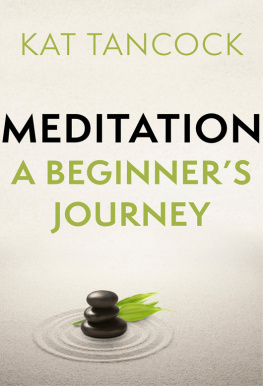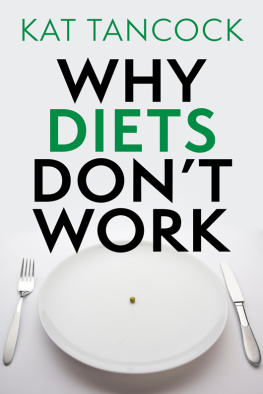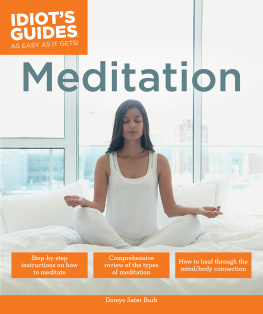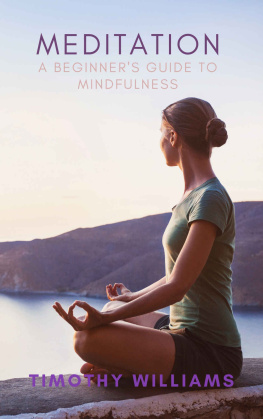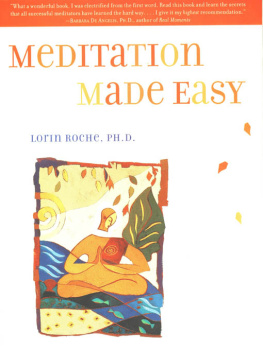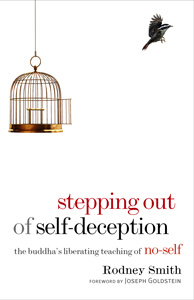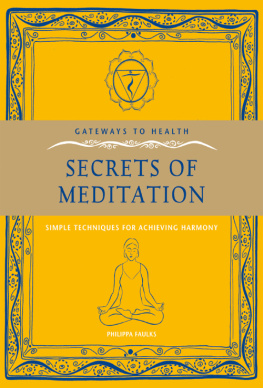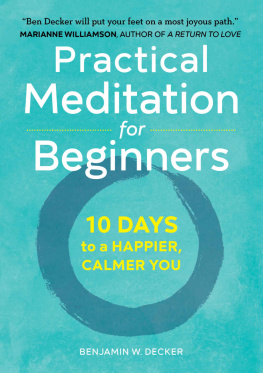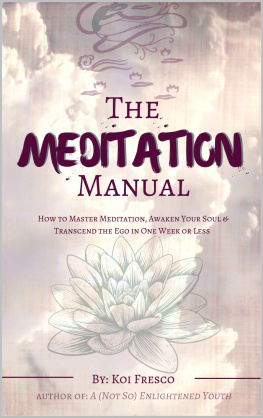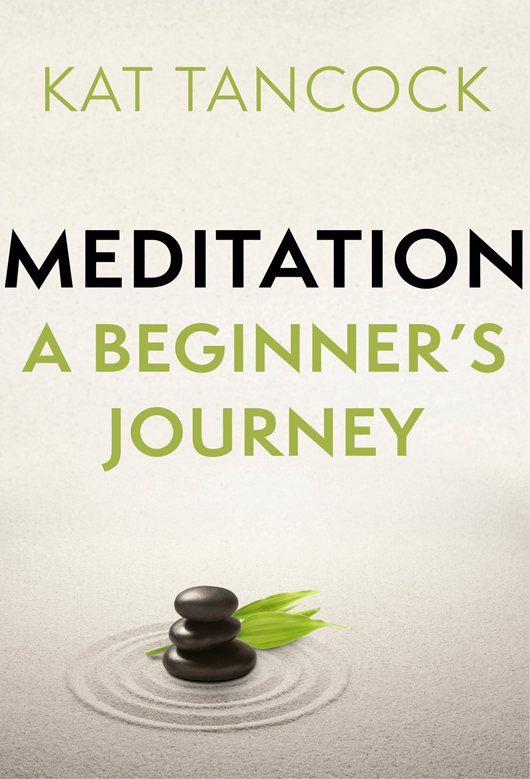Im lying in the meditation hall at Travaasa, an experiential resort near Austin, Texas, wrapped in two blankets to ward off the early-morning chill. Im still resonating from the chant we started the session with as I listen to the voice of Jennifer, our meditation teacher, leading us through a simple exercise of scanning and relaxing the body, then focusing on our inhales and exhales. We begin with a mantra, repeating the Sanskrit syllables so and ham as the breath goes in and out, and place hands on belly and chest to ground ourselves as we breathe even deeper. And despite a tickly throat that tries hard to distract me, I feel a sense of peace radiating from my chest and through my whole body.
After slowly emerging from our meditation, we repeat three oms, stand and stretch, and Im struck by how calm and mentally refreshed I feela far cry from my typical start to the day, reading email and checking Twitter before Im even awake. And I tell myself that this feeling is worth it, that Ill start meditating regularly when Im home, to bring this serenity into every morning.
Almost a year later, Im in a seated meditation at Torontos 889 Yoga, part of the Sunday-afternoon restorative yoga class. I had chosen this particular class to be with a friend recovering from illness, but the truth is, both of us would have picked a physically demanding vinyasa class instead, had she been up to it. And while Im trying to focus on my breath, everything else is grabbing my attentionincluding guilt about this being my first meditation class since my visit to Travaasa, despite stellar intentions. And instead of setting myself up to fail once again, I commit to a realistic goal this time: not to meditate regularly just yet, but to research meditation, and work out a plan to get the practice into my life for good.
Ive been practising yoga for a long time and have done my share of flirting with meditation alongside the physical poses. But actual honest-to-goodness meditation? Like staying away from bright screens before bedtime, its one of those brilliant ideas that has never seemed to stick. The older I get, however, and the more I hear about the benefits of meditationless anxiety and better sleep are at the top of my listthe more I think it should be part of my life.
So I got in touch with the experts, meditation practitioners who feel so strongly about the value of the practice that they teach it to others. I asked about their relationship with meditation, about what meditation means to them and how they think it helps them. And perhaps most important, I asked these experts to share their secrets for making meditation a regular practice.
This is what I learned. Its helping me, and I hope it helps you, too.
Meditation is a word with a lot of baggage. For many, it conjures up images of long-haired hippies sitting cross-legged and chanting with their guru from India. Alternatively, it might stir up visions of mentally disciplined Vulcans from Star Trek, emotionless and obsessed with logic. Either way, although meditation is part of Western religious tradition, its often seen as a mystical or New Age quirk rather than as a useful and rationally grounded tool.
The word meditate is also used to describe thoughtful deliberation over a decision or issue, in the sense of let me meditate on that and get back to you. But its the other definition that were concerned with here, what the Canadian Oxford Dictionary explains as to exercise the mind in (esp. religious) contemplation.
Exercise the mindits a perfect definition that draws easily understood parallels. Just as we dont expect to have strong biceps without regularly lifting heavy things to maintain the muscles abilities, we shouldnt expect to have a mind working at its best if we dont practise using it in targeted ways. And to take the analogy even further, just as physical exercise is defined as the practice of moving the body with intention, meditation is the practice of focusing the mind with intentionand for both, the goal is not perfection in each execution but improved abilities in the rest of our lives.
Its about learning skills, says Dr. Paul Kelly, founder of the Mindfulness Clinic in Toronto. The point isnt to just meditate for half an hour. Thats good to do, but the interest is to help people live well in their lives, so they can begin to tune in and sense experience and really be present with themselves. When youre brushing your teeth, can you just brush your teeth? When youre eating your food, can you taste it?
So what does meditation really mean, then? Quite simply, its the act of intentionally focusing the mind in a structured way, and repeating that practice periodically. Different types of meditation might change up the structure, but its the act of focusing, and the repetition of that act, that makes it meditation. You dont have to have a blank mind or achieve some kind of inner peace or enlightenment for your meditation to be successfulthe only measure of success is that youre sitting in the first place.
I dont think you can do it wrong, says Toronto psychiatrist Dr. Susan Abbey, who teaches mindfulness-based stress reduction to people with major medical illnesses. If youre able to keep your mind focused, youre doing it right. And if your mind goes off and you recognize that its off, which you will at some point, and bring it backthats right as well.
I came to meditation when I was in university and looking for a way to calm my restless mind, says Montrealer Tanya McGinnity, who blogs about her journey at fullcontactenlightenment.com . I was suffering from panic attacks and insomnia and wanted to find a non-medicinal way to heal and relax. She found that a regular meditation practice improved her condition. While its best for those with serious medical issues to seek care, in my particular case, I found that my condition improved through establishing a regular meditation practice and through learning how to breathe properly.
And though meditation is commonly understood to be primarily about calming a stressed-out mind, its functional applications when it comes to brainpower are far broader than that. Meditation to me is more about being able to focus the mind, says Kristine Huffman, general manager at Travaasa Austin and a meditation teacher. You can use that focus to relax, but you can also use it to sustain attention, do creative thinking or make important decisions.
Before she discovered meditation, Huffman says she was known for having a bad temper; a regular practice for more than 20 years has helped her gain a more neutral perspective, so I dont have as many knee-jerk, crabby, negative reactions to things. Just as regular exercise can change your appearancebetter posture, more defined arms, shapelier calvesregular meditation, too, can have an effect on how you appear to others. People used to sometimes use the B word when they described me, Huffman adds. Now? I can go to a neutral place before I make a decision.
The goal, says Kelly, is to help people tune in and sense experience and really be present with themselvesa mindfulness whose aim is to increase quality of life. And beyond this heightened mindfulness, meditation can help us deal with our internal baggage. For instance, one thing Kelly highlights in his teaching is the concept that thoughts are not facts. We talk to ourselves all the time about stuff, he says. What if we could check that thought and not necessarily believe it right away? Or be able to be flexible and ask, is there another way to think about this? Then people arent just reacting in an automatic way about whats going on. They can be a little more thoughtful about it and maybe a little wiser in how they respond to things. So with that, their lives start to go better.

